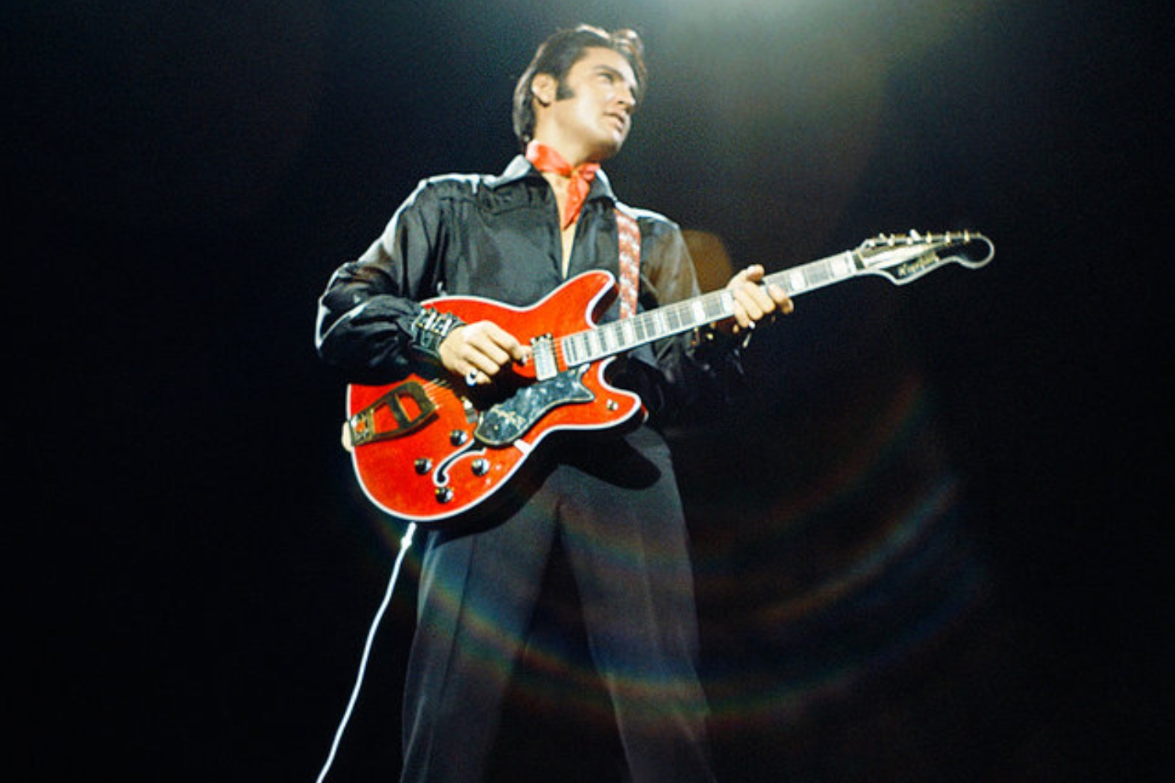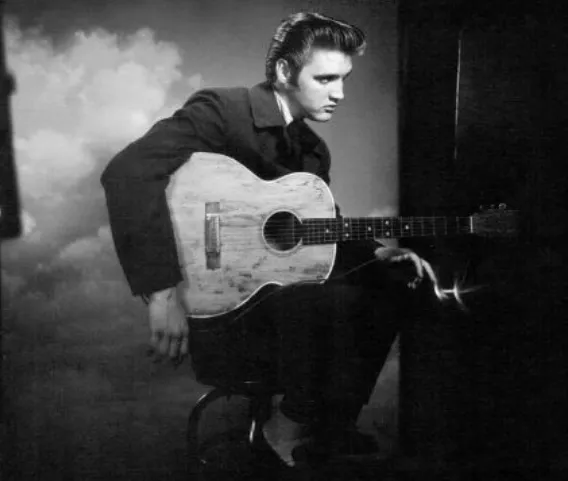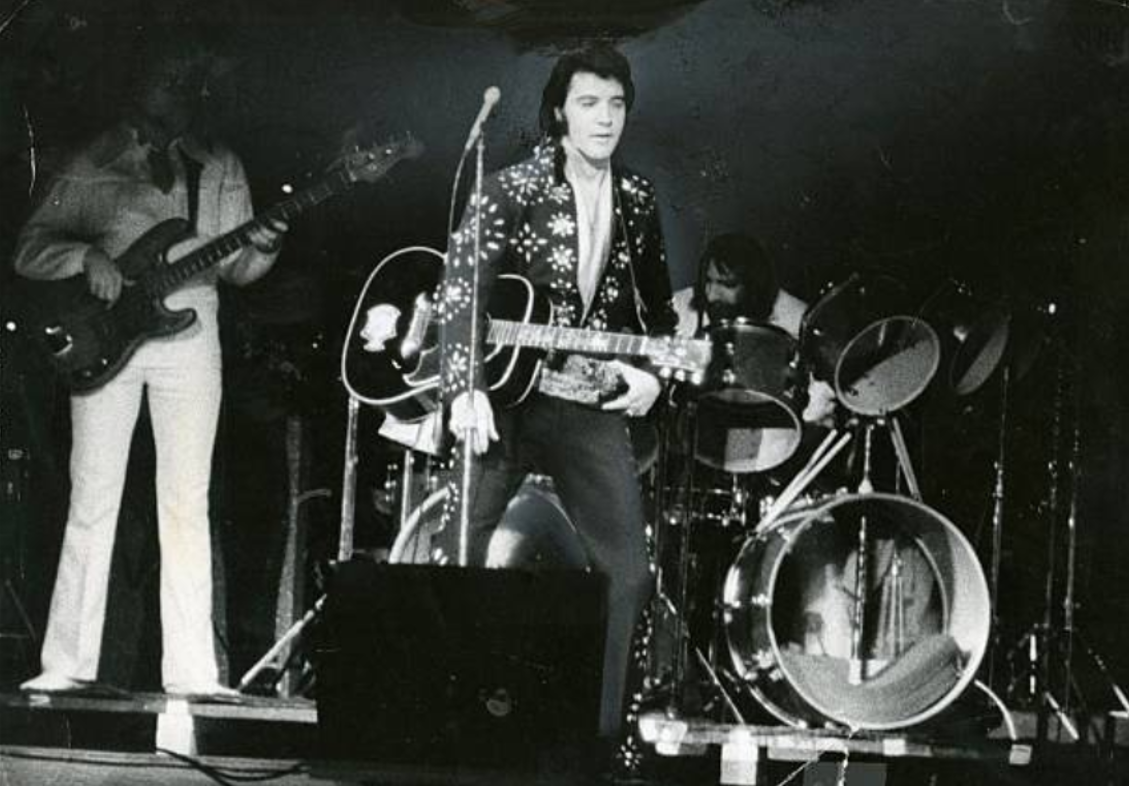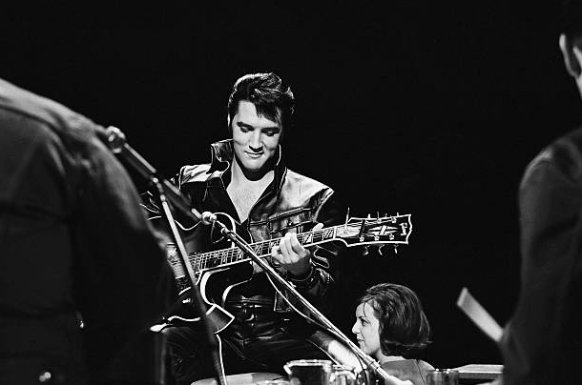Milkcow Blues Boogie: Elvis Presley's Rockabilly Revolution
(watch the video below)
Elvis Presley, the King of Rock and Roll, remains an icon whose influence transcends generations. Among his myriad of hits, "Milkcow Blues Boogie" stands out as a testament to his versatility and ability to blend genres effortlessly. Released in 1955, this track embodies the essence of rockabilly, a fusion of country, rhythm and blues, and rock and roll. In this extensive analysis, we delve into the origins, musical characteristics, cultural significance, and enduring legacy of "Milkcow Blues Boogie," shedding light on its pivotal role in shaping the landscape of popular music.
"Milkcow Blues Boogie" traces its roots to the blues tradition, specifically the "Milk Cow Blues," a classic blues song first recorded by Kokomo Arnold in 1934. The song's narrative revolves around a lament over lost love and economic hardship, themes common in blues music. Presley's rendition, however, injects a fresh energy and dynamism into the traditional blues format.
The composition features a standard 12-bar blues structure, characterized by three chords (I-IV-V progression), a driving rhythm, and improvised instrumental solos. Presley's vocals exude charisma and raw emotion, drawing listeners into the narrative with his distinctive blend of blues, country, and rockabilly influences. The song's lively tempo and infectious groove showcase Presley's ability to captivate audiences with his electrifying stage presence.

Elvis Presley recorded "Milkcow Blues Boogie" on November 14, 1954, during his early sessions at Sun Studio in Memphis, Tennessee. Backed by his bandmates Scotty Moore on guitar and Bill Black on bass, Presley delivered a spirited performance that captured the essence of the emerging rock and roll movement.
Sam Phillips, the legendary producer and founder of Sun Records, recognized Presley's potential and played a pivotal role in shaping his sound. Phillips' innovative approach to recording, which involved capturing live performances in the studio, contributed to the raw, unfiltered quality of Presley's early recordings. The result was a series of groundbreaking singles that catapulted Presley to stardom and laid the foundation for his legendary career.
"Milkcow Blues Boogie" opens with a rollicking guitar riff that sets the stage for Presley's electrifying entrance. Moore's inventive guitar work, characterized by twangy licks and energetic rhythms, serves as the driving force behind the song's infectious groove. Black's upright bass provides a solid foundation, anchoring the rhythm section with its thumping bass lines.
Presley's vocals are the focal point of the song, conveying a sense of urgency and passion that resonates with listeners. His dynamic range, from gritty growls to soaring falsetto, adds depth and dimension to the performance. The call-and-response interplay between Presley's vocals and Moore's guitar creates a sense of spontaneity and excitement, giving the song a vibrant, improvisational feel.

The instrumental break showcases Moore's virtuosic guitar skills, with lightning-fast runs and fiery solos that showcase his technical prowess. Black's pulsating bass lines provide a steady groove, driving the song forward with relentless energy. The synergy between the three musicians is palpable, creating a sense of musical camaraderie that is emblematic of the rockabilly genre.
"Milkcow Blues Boogie" was released as the B-side to Presley's hit single "You're a Heartbreaker" in January 1955. While it didn't achieve the same commercial success as some of his other recordings, the song played a crucial role in solidifying Presley's reputation as a dynamic performer and innovator in the burgeoning rock and roll scene.
The song's infectious rhythm and electrifying energy resonated with audiences, helping to popularize the rockabilly genre and pave the way for future rock and roll artists. Its fusion of blues, country, and rhythm and blues influences exemplifies the melting pot of musical styles that defined the early days of rock and roll.
Moreover, "Milkcow Blues Boogie" showcased Presley's ability to reinterpret and revitalize traditional blues songs for a new generation of listeners. His charismatic persona and groundbreaking musical style captivated audiences around the world, transcending racial and cultural boundaries in the process.
Decades after its initial release, "Milkcow Blues Boogie" remains a cornerstone of Elvis Presley's vast musical legacy. Its influence can be heard in the work of countless artists across a wide range of genres, from rock and roll and rockabilly to blues and country.

Presley's groundbreaking fusion of musical styles laid the groundwork for the rock revolution of the 1960s and beyond, inspiring generations of musicians to push the boundaries of creativity and innovation. His dynamic stage presence and charismatic persona continue to captivate audiences to this day, ensuring that his music will live on for generations to come.
In conclusion, "Milkcow Blues Boogie" stands as a testament to Elvis Presley's enduring legacy as a pioneer of rock and roll. Its infectious rhythm, electrifying energy, and raw emotional power continue to resonate with listeners around the world, cementing its status as a timeless classic in the annals of popular music.
Video
Lyrics
Let's sing along with the lyrics !
Well, I woke up this morning
And I looked out the door
I can tell that old milk cow
By the way she lowed
Hold it, fellows, that don't move me
Let's get real, real gone for a change
Well, I woke up this morning
And I looked out the door
I can tell that that old milk cow
I can tell the way she lowed
Well, if you've seen my milk cow
Please, ride her on home
I ain't had no milk or butter
Since that cow's been gone
Well, I tried to treat you right
Day by day
Get out your little prayer book
Get down on your knees and pray
For you're gonna need
You're gonna need your loving daddy's help someday
Well, then you're gonna be sorry
For treating me this way
(Oh let's milk it)
Well, believe me, don't that sun
Look good going down?
Well, believe me, don't that sun
Look good going down?
Well, don't that old moon look lonesome
When your baby's not around
Well, I tried everything to get along with you
I'm gonna tell you what I'm going do
I'm gonna quit my crying
I'm gonna leave you alone
If you don't believe I'm leaving
You can count the days I'm gone
I'm gonna leave
You're gonna need your loving daddy's help someday
Well, you're gonna be sorry
You treated me this way



